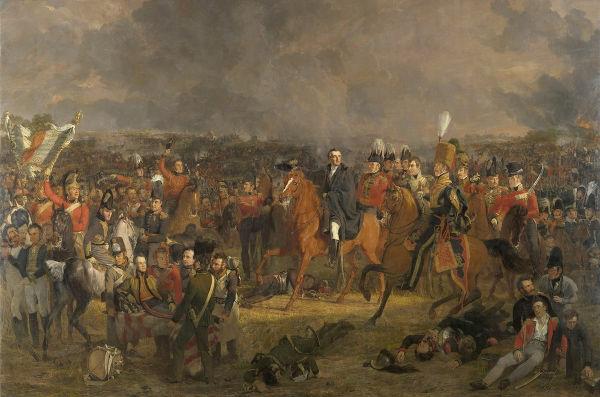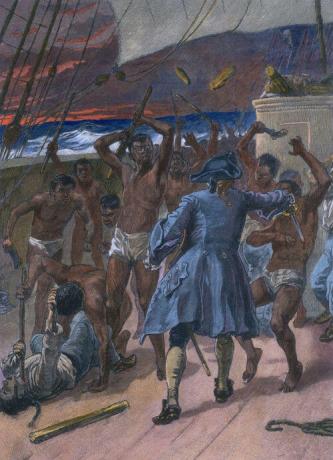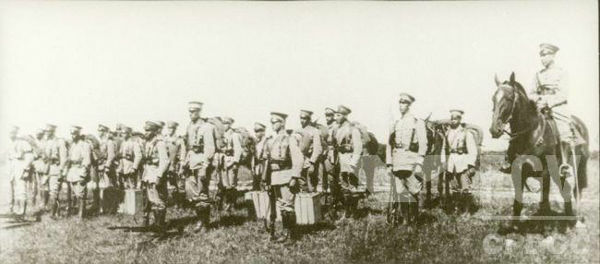NapoleonBonaparte he was a famous French general who amassed influence through his important military victories during the years of the French Revolution. He reached the power of France through a coup known as the 18th Brumário coup, carried out in 1799. The general remained in power for nearly 15 years.
During this period, he promoted reforms in France, persecuted his critics, and expanded French territories through war. To harm the English, established the Continental Block, but the Russian refusal to obey the blockade caused Napoleon to invade Russia, where he was defeated in 1812. However, his definitive defeat took place at Waterloo, in the year 1815.
birth and origins

Napoleon Bonaparte was born on August 15, 1769, in Ajaccio, city located on the island of Corsica, which lies in the Mediterranean Sea. his family had origin linked to Italy, since his father, Carlo Maria Bonaparte, and his mother, Maria Letícia Ramolino, were descendants of noble families in that country, since the Corsica island belonged to Italy until the year 1768, making the entire Corsican society to have cultural approximation with the Italians.
This situation even impacted Napoleon's own life, since his name had Italian spelling - Napoleone di Buonaparte. Throughout his life, to facilitate his insertion in French society, after all Corsica passed to the domain of France, he changed the spelling of his name to the French form: NapoleonBonaparte. Napoleon's family consisted of his parents and nine children, two of whom died in infancy.
Accessalso: Do you know what the Terror promoted by the Jacobins was?
Formation and military career of Napoleon Bonaparte
Napoleon had access to a good education because of his family's financial condition and, in 1785, he graduated from the Paris Military School. After studying in Paris, Napoleon worked in different regiments in France, but kept in touch. frequent with people from Corsica, as it was part of the local revolutionary movement that demanded greater autonomy of the island.
The growth of Napoleon Bonaparte's career is directly related to the events of the French Revolution. The first demonstration of Napoleon's great ability as a military man took place in 1793, when he he led the artillery of a battalion that attacked Toulon, a city that had rebelled against the republic of Robespierre.
This feat gave Napoleon some notoriety, and his proximity to the Jacobins earned him promotion to brigadier general. The good relationship with this political group nearly put his career in the dust when the Girondins took power in France, through a coup known as ReactionThermidorian. Napoleon became stuck for two weeks, but since he was a good soldier, he was soon released.
He was invited to participate in the formulation of strategies in the fight against the Austrians, but his big chance he came about when he was asked to lead the resistance against a royalist revolt taking place in the streets of Paris in 1795. He managed to contain this rebellion, ensuring the safety of the Directory, institution that governed France at the time. This success won recognition for Napoleon and then he was appointed to command a French troop which was installed in Italy.
conquering power
At the head of command of the troops installed in Italy, Napoleon achieved very important victories for his country. He led the armies that defeated the Austrians and marched his troops into Austria. This forced the First Coalition to seek to negotiate peace with the French.
In April 1797, a peace agreement was signed which became known as Leoben Treaty. This peace treaty ensured the French victory, thus the republic was maintained and the country even conquered some territories ceded by Francis II, emperor of the Holy Roman Empire. Napoleon was the one who signed this treaty, and when he returned he was received as a true hero.
Napoleon knew how to take advantage of the moment and, through two newspapers, he did self-advertisement, making his name better known by the French population. In 1798, he decided to go on a campaign to Egypt and Syria with the aim of harming the commercial interests of the British. He also wanted to move forward in the region to make contact with India.
The campaign to Egypt failed and while this campaign was underway, Napoleon decided to abandon his troops and return to France to initiate a conspiracy to seize power. France was experiencing a lot of instability, politically, economically and socially, and the name of Napoleon began to appear as an alternative for solving these problems.
He actually carried out the coup and seized power in France through the Brumaire 18 hit, which took place in November 1799. This coup ended the revolutionary cycle, just as it ended the Directory, and a new institution emerged in France: the Consulate. In this new moment, France was governed by three consuls. The first consul was the one with the greatest powers, as Napoleon assumed.
Accessalso: Do you know what the French revolutionary calendar was?
Emperor Napoleon Bonaparte

The Consulate extended from 1799 to 1804 and during this period the French general promoted a series of reforms in France while pursuing any opposition that might arise. As a result, Napoleon became very popular and prestigious as his critics were silenced and his reforms had some success.
Craving more powers, Napoleon decided to proclaim himself emperor French. France ceased to be a republic and became an empire, and the Napoleon's coronation it happened in Paris in the year 1804. A year before he was crowned, France's war with England had resumed after a few months of peace.
This new war was against the Third Coalition, in which several countries and kingdoms joined the British to fight France. By the end of Napoleon's rule, three other coalitions were formed against the French. Until Napoleon's final defeat, a number of territories were conquered by the French, and Napoleonic rule extended to other parts of Europe.
At the resumption of that war, Napoleon's troops proved effective on land, but at sea the English were even more powerful. The emperor wanted to invade England, but his fleet did not allow him to do so, so the way he found to suffocate the English was through trade.
Napoleon instituted the Continental Lock and forbade the nations of Europe to trade with the United Kingdom, and those who did not comply would be invaded by French troops. This is what happened to the Portuguese in 1807 and why the fanPortuguese royal milia changed-if to Brazil.
Napoleon's downfall

In 1812, the Russians broke the blockade, and Napoleon decided to invade the Russian Empire as punishment. THE russia campaign it was a real disaster, and although Napoleon reached Moscow, his troops were annihilated by starvation and Russian counterattacks. This showed that it was possible to defeat France.
The territories under French rule rebelled, and the fridaycoalition was formed. In October 1813, during the Battle of Nations, Napoleon was defeated and was forced to abdicate the French throne. It was sent to the exile on the island of Elba while in France, Louis XVIII, brother of Louis XVI, assumed power.
He arrived on the island in May 1814, but in February 1815 he fled and secretly returned to France, mobilized troops and seized power, initiating the One Hundred Days Government. On June 18, 1815, the final defeat took place when Napoleonic troops were defeated in the Battle of Waterloo. Napoleon's failure guaranteed the temporary return of the absolutism the France.
Accessalso: The congress that reshaped the European map after Napoleon's defeat
Napoleon's death
Napoleon was again sent into exile, but this time he was placed in distant Saint Helena island, located in the middle of the Atlantic Ocean. In St. Helena, he had the company of some followers, but he was constantly watched by the English, so he spent the last years of his life. Napoleon died on May 5, 1821, probably on account of a stomach cancer.


